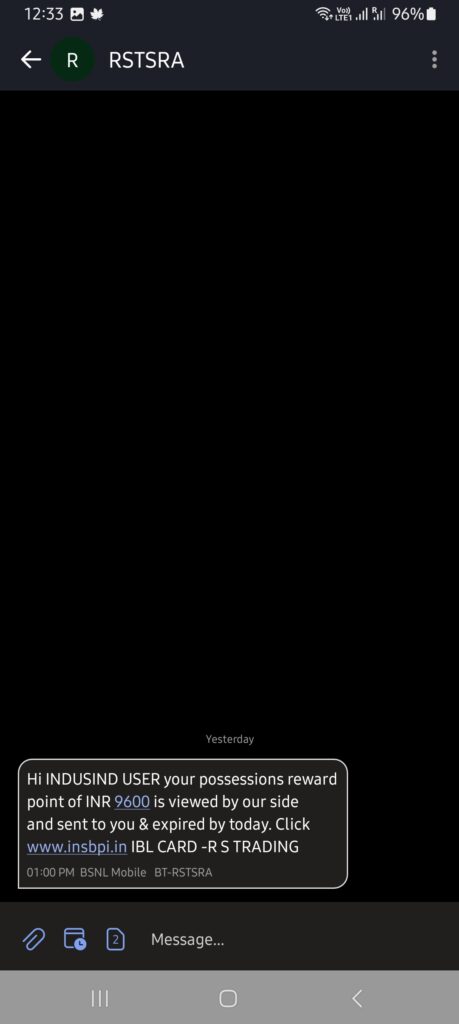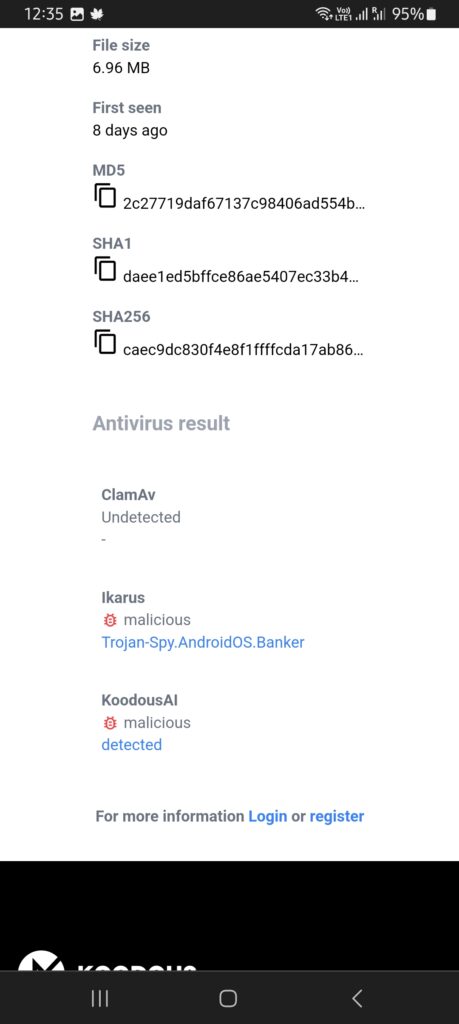Beware of SMS Scams: Protect Yourself from Banking App Malware
In recent times, there has been a surge in SMS scams targeting unsuspecting individuals, with scammers using deceptive tactics to impersonate well-known banks like INUSIND Bank, SBI, and others. These scams involve sending SMS messages from sender IDs such as SHNFOT, RSTRA, and UTIMG, along with links to download malicious apps from websites like insbpi.in. Here’s what you need to know to safeguard yourself from falling victim to these scams:






- Identifying Scam SMS Messages: Scammers often employ various techniques to make their messages appear genuine and urgent. They may claim to be from reputable banks and use official-looking sender IDs to instill a false sense of trust. However, it’s crucial to remain skeptical of unsolicited SMS messages, especially those containing links to download apps.
- Downloading Malicious Apps: The SMS messages typically instruct recipients to click on a link and download an app from a website like insbpi.in. However, these apps are not legitimate banking applications; instead, they contain malware known as Trojan.Spy.AndroidOS.banker. Once installed on a device, this malware can discreetly collect sensitive information, including login credentials, banking details, and one-time passwords (OTPs), which can then be used by the scammers for fraudulent activities.
- Protecting Yourself: To protect yourself from falling victim to these phishing attempts, it’s crucial to exercise caution when receiving unsolicited SMS messages. Never click on links or download apps from unknown or untrusted sources, especially if they claim to be from your bank. Remember that legitimate banks will never ask you to download apps or provide sensitive information via SMS.
- Beware and Stay Vigilant: Scammers are continuously evolving their tactics to bypass security measures and exploit unsuspecting individuals. Therefore, it’s essential to remain vigilant and skeptical of any unsolicited communication, especially when it involves requests for personal or financial information. If you receive such messages, delete them immediately and refrain from engaging with the sender.
- Report Suspicious Activity: If you encounter a suspicious SMS message or believe you may have fallen victim to a scam, report it to your bank’s fraud department or the appropriate authorities immediately. By reporting these incidents, you can help prevent others from becoming victims of similar scams and contribute to efforts to combat cybercrime.
In conclusion, protecting yourself from SMS scams requires diligence and awareness of the tactics used by scammers. By following the tips outlined above and remaining cautious when receiving unsolicited messages, you can reduce the risk of falling victim to phishing attempts and safeguard your personal information and finances from harm. Remember: when it comes to unsolicited SMS messages, it’s always better to be safe than sorry.



